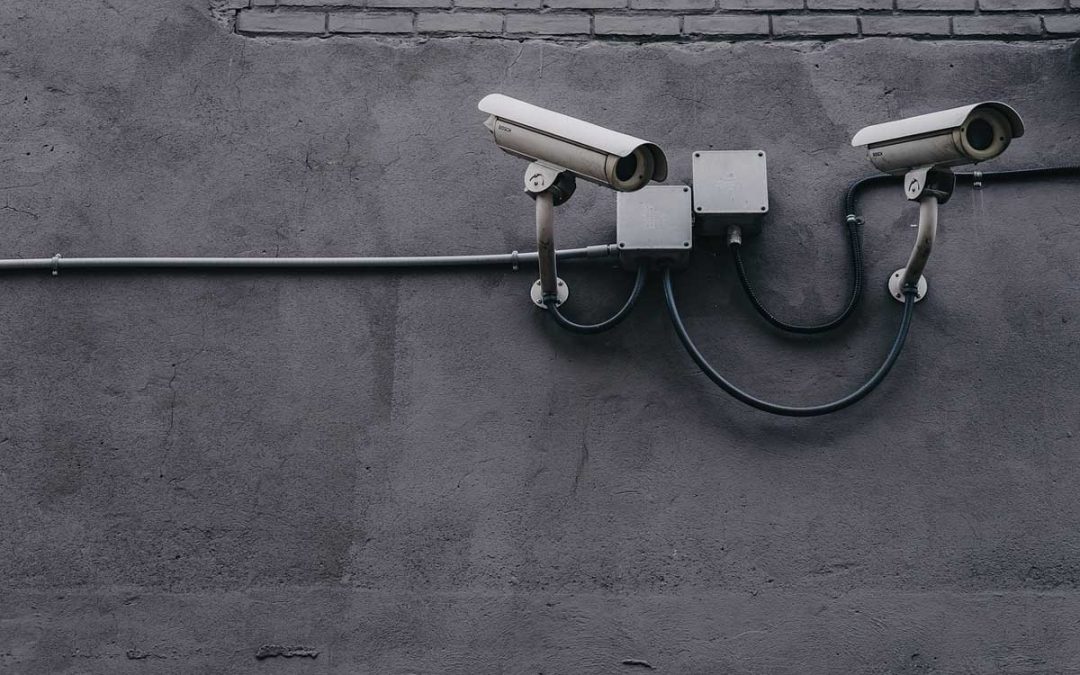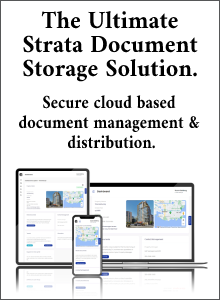
The Personal Information Protection Act & Strata Corporations
PIPA and Strata Corporations: Frequently Asked Questions
This FAQ is intended to accompany the Privacy Guidelines for Strata Corporations and Strata Agents to assist strata corporations and strata agents in discharging their duties under the Strata Property Act (“SPA”) in a manner that respects the privacy of owners and tenants under the BC Personal Information Protection Act (“PIPA”).
Check out the full guidelines for more detailed information regarding how strata corporations, and strata agents acting on their behalf, must adhere to the privacy rules contained in PIPA.
Q: Is a strata corporation subject to the Personal Information Protection Act?
A. Yes. A strata corporation is considered an “organization” under the Personal Information Protection Act (PIPA).
Q: Is a strata corporation permitted to collect and use personal information for its management purposes?
A: Yes, a strata corporation can collect and use personal information, but it must limit the amount of information to what is reasonable for its operation or to meet its obligations under the Strata Property Act (SPA) and other relevant legislation. Generally, the corporation needs an individual’s consent to collect and use their personal information. However, the Personal Information Protection Act (PIPA) provides exceptions to this requirement. Specifically, if the SPA authorizes or mandates the collection and use of personal information, consent is not necessary.
For instance, section 35 of the SPA allows the strata corporation to collect personal information, such as a list of owners with their strata lot addresses and mailing addresses (if different), names of tenants, and a list of strata council members.
Q: What personal information can a strata corporation collect and include in the minutes of strata council meetings?
A: The Personal Information Protection Act (PIPA) does not specify what personal information should or should not be included in the minutes of a strata corporation’s meetings. Strata councils should record only the minimal amount of personal information necessary to provide an accurate and objective account of their decisions.
When a strata council member or guest attends a meeting, they provide implied consent for their name and unit number or strata lot number to be included in the minutes. Similarly, the names of authorized attendees, such as the strata manager, can be noted. The names, strata lot numbers, and/or unit numbers of council members not attending the meeting may also be recorded.
According to Section 18(3) of the Standard Bylaws, “the results of all votes at a council meeting must be recorded in the council meeting minutes.” The minutes should document all decisions made by the strata council, but they do not need to include the exact discussions leading up to any votes. It is essential that the minutes clearly record how resolutions are amended and the outcomes of votes. Our guidelines offer more detailed practical advice on what should not be included in the minutes.
Q: What should be done if a person making or seconding a motion objects to having their name recorded in the minutes?
A: When someone makes or seconds a motion, they are implicitly consenting to the collection of their personal information under section 8(1) of PIPA. If the individual later withdraws their consent, they cannot continue to move or second the motion.
Q: Can a strata council record a council meeting electronically?
A: A strata council or general meeting should not be recorded with an audio or visual recording device unless a majority of owners or strata council members pass a resolution allowing it. While PIPA governs the actions of organizations like corporations and not private individuals, a strata corporation may consider passing a bylaw to prohibit any recording devices at meetings without prior approval from a majority of eligible voters present in person or by proxy at the time of the vote.
Q: Section 36 of SPA allows an owner to access the minutes of annual and special general meetings as well as council meetings. Do names and other personal information need to be removed before releasing the minutes?
A: No, names and personal information do not need to be removed. Section 36 of the Strata Property Act (SPA) mandates that upon request, the strata corporation must provide access to records and documents to owners and other authorized individuals. Since this disclosure is authorized by law, personal information in the minutes can be disclosed under section 18(1)(o) of the Personal Information Protection Act (PIPA).
However, because minutes may be shared with people not living in the strata corporation, such as realtors and prospective owners, it’s crucial to disclose only the minimal amount of personal information. The best practice when drafting minutes is to avoid including personal information that is not necessary for business or legal purposes.
Q: When an owner requests strata council approval for a renovation, can the minutes include the unit number, lot number, or other identifying details of the unit undergoing the renovation?
A: Yes, the strata minutes should accurately reflect the decision made, and including the unit number or strata lot number is permissible as long as individual owners are not named. This practice does not violate PIPA. To maintain transparency, it is advisable to inform the strata lot owner that these details will be included in the minutes if approval is granted.
Q: Can a resident access a letter of complaint about them?
A: Yes, under Section 36 of the Strata Property Act (SPA), strata councils must disclose records and documents, including correspondence, to owners and other authorized individuals. The Personal Information Protection Act authorizes this disclosure under Section 18(1)(o). Additionally, a resident can request access to their own personal information under Section 23 of PIPA, which includes letters of complaint held by the strata corporation. Given that strata corporations can disclose complaint letters to the person the complaint is about under the SPA, it is advisable for strata corporations to have clear policies.
These policies should inform all owners and tenants that complaint letters will be disclosed upon receiving a written request by an authorized individual, including the person who is the subject of the complaint.
Q: What obligations does a strata corporation have to redact third-party personal information in correspondence when requested by a strata property owner?
A: Section 36 of the Strata Property Act (SPA) mandates that strata corporations must disclose documents and records upon request by owners and other authorized individuals. PIPA authorizes this disclosure under Section 18(1)(o). Since the disclosure is expressly authorized by the SPA, there is no requirement under PIPA to redact personal information contained in the correspondence.
Q: Can a strata corporation charge for expenses incurred in producing and providing a document requested under the SPA?
A: Yes, if a person requests copies of strata records under Section 36 of the Strata Property Act (SPA), the strata corporation may charge a fee of 25 cents per page, in accordance with Section 4.2 of the Strata Property Regulation. PIPA does not impact this process.
Q: Can the names and contact information of strata council members be disclosed to anyone who asks or be published in a newsletter or on a website?
A: The names and mailing addresses of strata council members can be disclosed to any strata lot owner or other authorized person to enable contact with council members. However, neither the Strata Property Act (SPA) nor the Personal Information Protection Act (PIPA) require that the telephone numbers or email addresses of strata council members be made publicly available.
Q: Can a strata corporation provide an owner with the contact information of other owners?
A: Strata corporations are required to maintain a list of the names and mailing addresses of strata lot owners and make this list available to other owners and authorized individuals, as per Sections 35 and 36 of the Strata Property Act (SPA). This list does not include phone numbers, email addresses, or any other contact information beyond mailing addresses if they differ from the strata unit.
If a strata corporation wishes to disclose additional contact information, it must ensure the disclosure is for a reasonable purpose and that the individual owner has consented to such disclosure for that specific purpose.
Q: Does PIPA affect a strata corporation’s ability to collect outstanding debts?
No. PIPA permits the reasonable collection, use and disclosure of personal information to collect a debt (ss. 12(1)(j), 15(1)(j) and 18(1)(g) of PIPA).
Q: Does PIPA impact a strata corporation’s ability to investigate and enforce its bylaws or rules?
A: A strata corporation can investigate and impose fines or other sanctions on owners, tenants, or their invitees for violating the corporation’s bylaws or rules, as outlined in Part 7, Division 3 of the Strata Property Act (SPA). PIPA allows the reasonable collection, use, and/or disclosure of personal information for the purpose of an “investigation” or “proceeding” (Sections 12(1)(c), 15(1)(c), and 18(1)(c) of PIPA). However, PIPA does not permit the use of measures like video surveillance to investigate and enforce minor bylaw infractions. For examples of minor bylaw infractions, refer to Order P09-02 (Shoal Point Strata Council) on our website: Order P09-02.
Q: Can a strata corporation install video surveillance on strata property?
A: PIPA permits video surveillance on strata property if a reasonable person would consider it appropriate under the circumstances. The Office of the Information and Privacy Commissioner (OIPC) has determined that video surveillance for security purposes may be reasonable, but its use to enforce minor strata bylaws is not appropriate, especially if less privacy-invasive measures have been tried first.
Before installing or operating video surveillance or an access control system, the strata corporation must pass a bylaw authorizing their installation and use. Additionally, the strata corporation must have a comprehensive written privacy policy governing the use of such systems and the personal information they collect.
Q: Can a strata corporation give personal information to a property management company it has hired?
Yes. Under s. 18(2) of PIPA, a strata corporation may disclose personal information to a property management company if:
- individuals consented to the original collection by the strata corporation;
- the personal information is disclosed solely for the purposes for which the information was originally collected; and
- is limited to that which the property management company needs to carry out work on behalf of the strata.
Q: Can a strata corporation disclose account and payment statements to an owner, a purchaser, or a person authorized by an owner or purchaser?
A: Yes, a strata corporation can disclose account and payment statements under certain conditions. Section 59 of the Strata Property Act (SPA) requires the issuance of an Information Certificate, which includes any amounts an owner owes to the strata corporation, excluding amounts paid into court or to the corporation in trust under Section 114. Additionally, a Certificate of Payment must be issued as required by Section 115 of the SPA. These disclosures are mandated by the SPA and are authorized under Section 18(1)(o) of PIPA.
Section 35(1)(d) of the SPA requires the strata corporation to maintain books of account that show money received and spent, along with the reasons for these transactions. Section 36(1) of the SPA states that these books of account can be disclosed to an authorized individual. Therefore, if a neighboring strata lot owner requests the corporation’s books of account, they may be able to see whether you owe money to the strata corporation.
Q: Can an owner use the personal information of other owners to convene a meeting to elect a council?
A: Yes, owners can use personal information to convene a meeting and elect a council if the owner developer has not done so, as outlined in Section 16 of the Strata Property Act (SPA). Since owners are not considered an organization under PIPA, this use of personal information is not restricted.
Q: Are owners who rent out their strata units subject to PIPA?
A: Yes, landlords are considered organizations under PIPA and must comply with the privacy and access rules outlined in the Act.
Q: Can an owner provide a tenant’s name to the strata corporation?
A: Yes, under Section 146 of the Strata Property Act (SPA), landlords must provide prospective tenants with current bylaws, rules, and a Form K Notice of Tenant’s Responsibilities. Within two weeks of renting the strata lot, the landlord must give the strata corporation a copy of the signed Form K. Additionally, under Standard Bylaw 4(2), a tenant must inform the strata corporation of their name if requested.
Q: My strata council claims that privacy laws prevent them from disclosing the names of companies that provided maintenance quotes. Can they refuse to provide this information?
A: No, they cannot refuse on those grounds. PIPA governs the collection, use, and disclosure of personal information by organizations, but information about maintenance fees or quotes is not considered personal information. Therefore, PIPA does not restrict the disclosure of such information.
Q: I believe my personal information was shared in an unauthorized way by my strata. How should I follow up?
A: PIPA allows individuals to file privacy complaints with the Office of the Information and Privacy Commissioner for British Columbia (OIPC). Before contacting the OIPC, you should try to resolve the issue directly with your strata. Submit a detailed written complaint to the strata’s privacy officer and give them at least 30 business days to respond. If you do not receive a response within this period or if you are unsatisfied with the response, you can then file a complaint with the OIPC.
Q: If an individual sends an email to a strata manager and requests that it remain private, can the strata manager share the email with the strata council?
A: If the email contains strata-related information, it cannot remain private. The strata manager, acting on behalf of the strata council and corporation, must adhere to Sections 35 and 36 of the Strata Property Act (SPA), which require the strata to keep copies of all correspondence it receives. Owners or strata council members who request access to this correspondence are entitled to view and obtain copies of it.
Q: Can the signatures on a strata corporation petition be disclosed to another owner?
A: Yes, signatures on a petition are generally considered publicly available. By signing, individuals are publicly expressing their support for a position. It is best practice for the person collecting signatures to inform signers that the petition may become a public document once submitted to the strata corporation.
Q: Does PIPA prevent a strata corporation from entering a strata lot to conduct a fire inspection with proper notice?
A: No, PIPA does not prevent such an inspection. The key issue is whether the inspection is properly authorized by the strata corporation, which is outside the jurisdiction of the OIPC.
Q: Can a strata corporation store its owner data and records with a cloud provider if the provider’s servers are located outside of Canada?
A: PIPA does not prohibit storing personal information outside of Canada. Ideally, the strata corporation should inform individuals where their information is being stored. The strata corporation may only collect personal information for purposes deemed appropriate and necessary under PIPA. If the data is stored outside British Columbia, the contract with the cloud provider should ensure that PIPA’s legal protections are upheld.
From the Office of the Information & Privacy Commissioner for British Columbia
Not Legal Advice - The material provided on the StrataPress website is for general information purposes only. It is not intended to provide legal advice or opinions of any kind and may not be used for professional or commercial purposes. No one should act, or refrain from acting, based solely upon the materials provided on this website, any hypertext links or other general information without first seeking appropriate legal or other professional advice. These materials may have no evidentiary value and should be checked against official sources before they are used for professional or commercial purposes. Your use of these materials is at your own risk.



